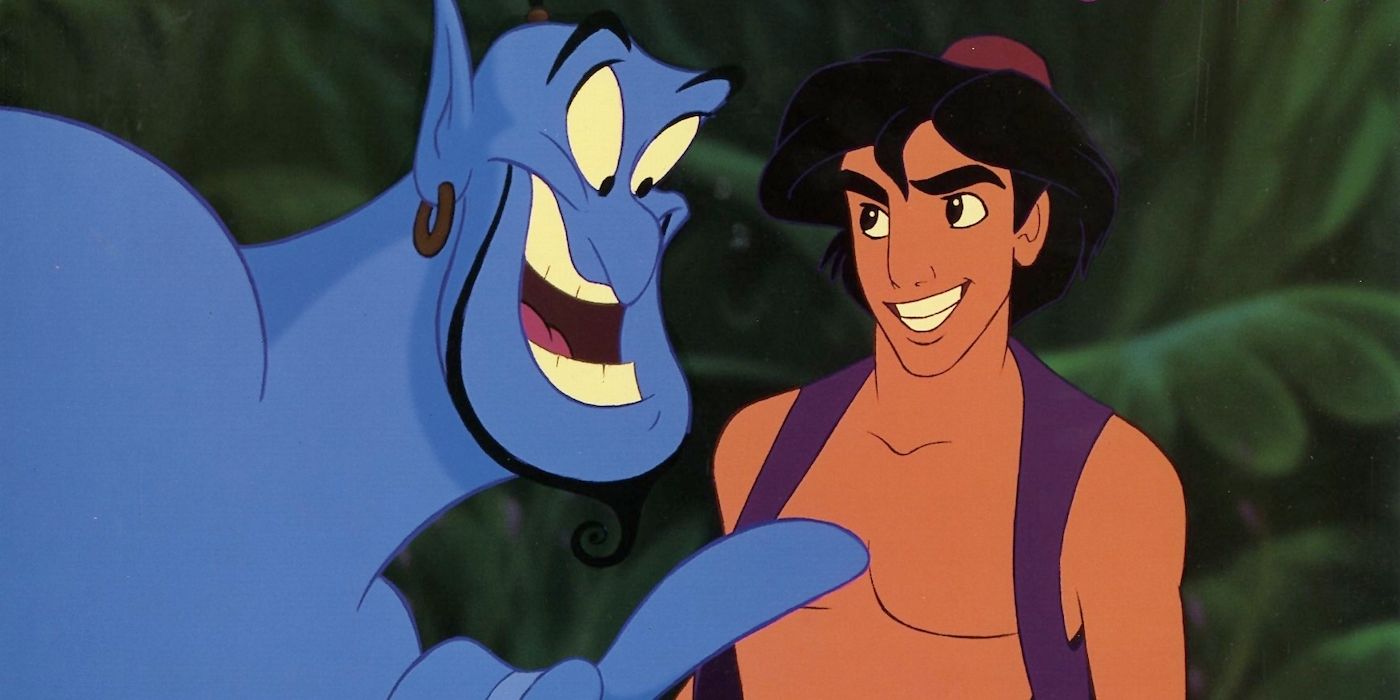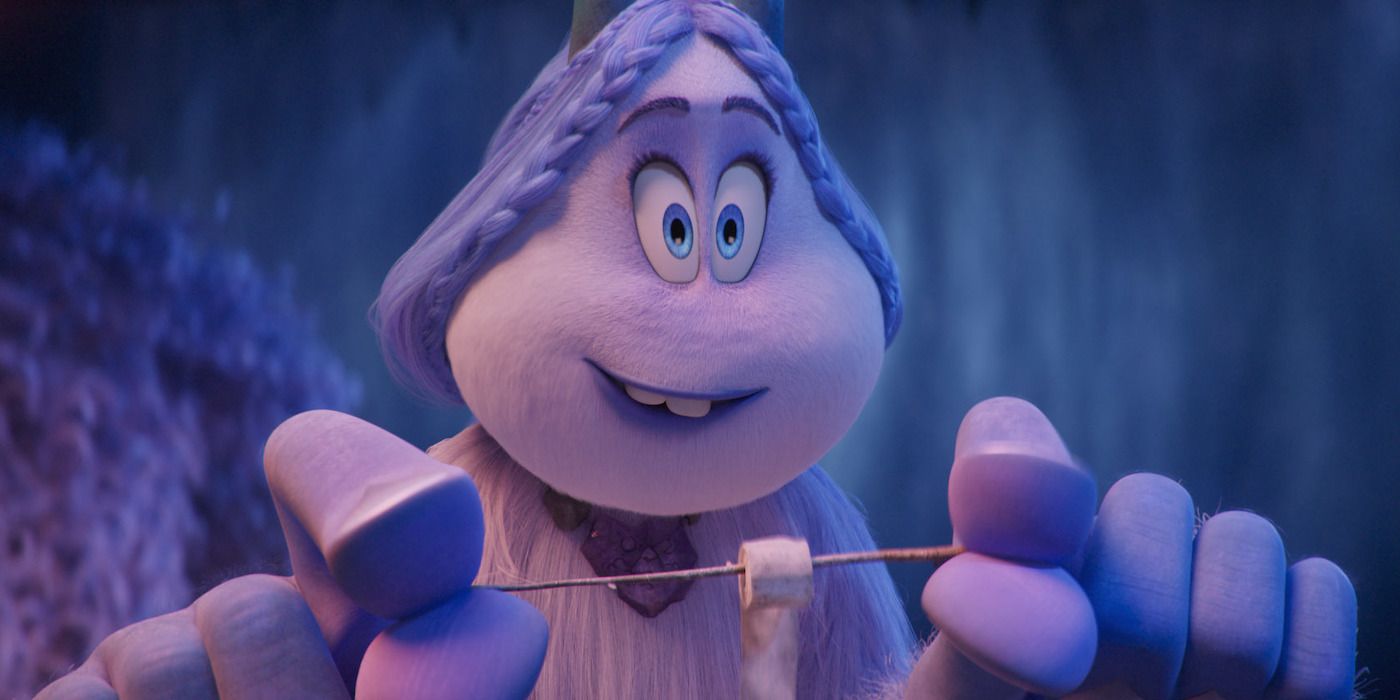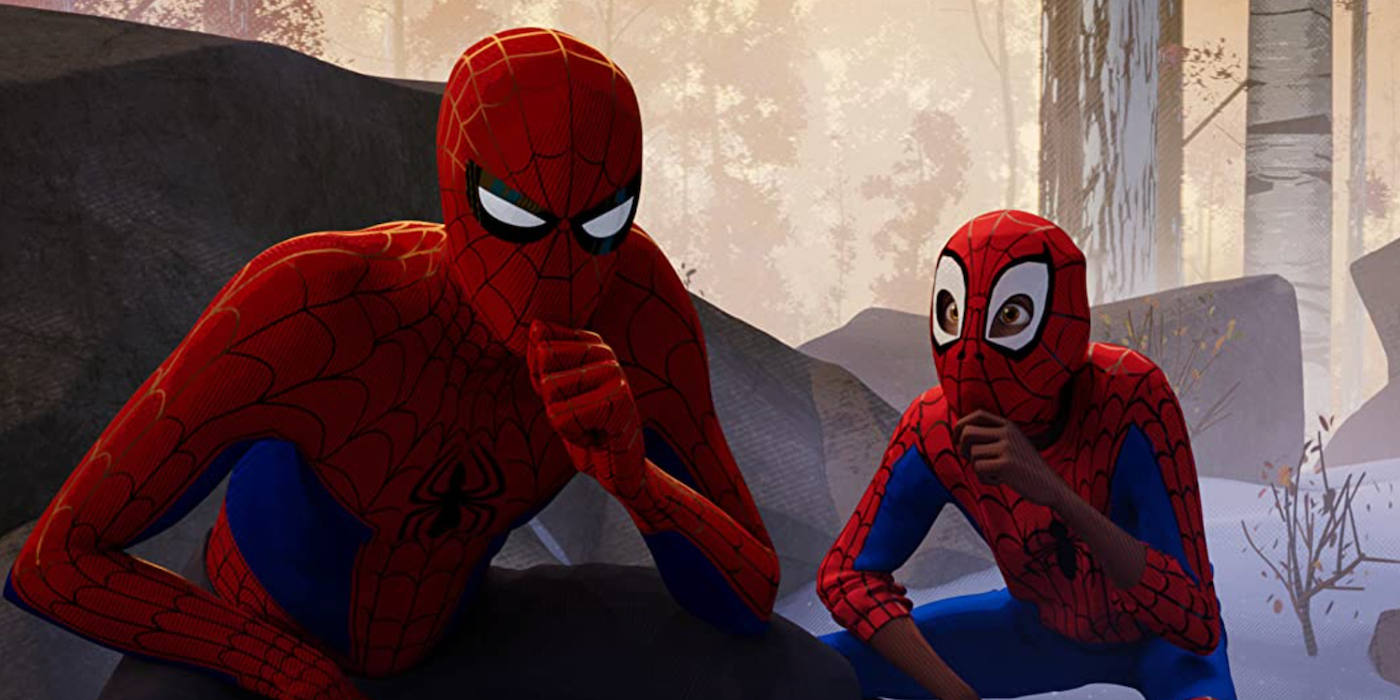When Did Celebrities Start Voicing In Animated Films
How many times a year has your local cinema been plastered with posters that item a laundry listing of celebrity names attached to an blithe motion-picture show? How oftentimes have animated trailers ended with a massive wall of text revealing a lengthy, star-studded voice bandage? Over the by couple of decades, it has nigh become ubiquitous for animated films to market themselves on their large-name voice talent. After all, animated movies can be a hard sell to a general moviegoing audience who sees them as only "for kids," and a line-up of pre-established stars with built-in entreatment and recognizable voices can help bring in crowds who typically stay away from cartoon flicks. At least, that is how things used to be until very recently.
While casting celebrities for roles in blitheness is far from a new practice, it was just in recent decades that animated features were treated as star vehicles for their voice talent. Originally, animated films were marketed on the spectacle of their stories, the artistry of their blitheness, and the diversity of their music. The voices were done by industry character actors with a groundwork in stage and radio that specialized in projecting performances with just their phonation and were seldom a selling bespeak for the final product. Prominent stars would phonation characters in blithe features prior to the 1990s here and in that location, such as Phil Harris in Disney'south The Jungle Book and Burt Reynolds in Don Bluth's All Dogs Go to Heaven , only the films were not heavily built around their involvement and their commercial awareness primarily stuck to the artistry of the films themselves.

Then, everything inverse in 1992 with the explosive success of Disney's Aladdin . The casting of stand-up superstar Robin Williams as the Genie was a spousal relationship of player and role that was revolutionary in the globe of animation. The picture show perfectly encapsulated Williams' comic stylings and rapid-fire improvisations through elastic blitheness that matched his free energy and blurred the line between animation and actor. Williams brought his own identity to give life to the Genie in a style that no other celebrity casting had before in an animated motion picture. The Genie was unmistakably modeled later on and written effectually the star that voiced him, and Williams' involvement netted Aladdin commercial success that trumped any of the previous Disney animated features up to that point. Disney had inadvertently changed the game for celebrities in animated films and its repercussions were felt nearly immediately.
When former Disney head Jeffrey Katzenberg founded DreamWorks Animation, the cultural shift built-in out of Williams' Genie began to manifest right away in films like Antz , The Prince of Egypt , and Shrek that flooded their vocalization casts with wall-to-wall A-list celebrities. No piece of Shrek'due south advert campaign would go by without the names Mike Myers, Eddie Murphy, Cameron Diaz, and John Lithgow paraded beyond trailers, Idiot box spots, and posters. Much like Aladdin, the film capitalized on the familiarity of its voice bandage for inspiration and captured their star personas within the animation. Donkey's personality and mannerisms were unmistakably modeled after the fast-talking, wise-cracking nature of Potato's stand-up, more then than even Disney did in Mulan .
The one-ii dial of Aladdin and Shrek's success started a new age in the human relationship between celebrities and blitheness. Studio animation became a factory of star vehicles that marketed themselves on the full-blooded of their glory talent more the merits of their story, artistry, or music to a betoken where audiences were more aware of the moving-picture show's vox cast than even the studio and artists that made information technology. DreamWorks' Shark Tale chop-chop became Will Smith, Angelina Jolie, Renée Zellweger, and Jack Black's Shark Tale as far every bit the marketing was concerned. And while but a pocket-sized success at the box office, awareness of Warner Brothers' Smallfoot exploded through "Zendaya is MeeChee" memes that spawned out of the film's marketing campaign more than the film itself.

Studios like Blueish Sky, Illumination, and even Disney followed in DreamWorks' mold of favoring celebrities, many of whom had never washed voices in animation before, over manufacture professionals who specialize in voice interim for marketability, regardless if they were a fit for the role or non; for every Tom Holland in Onward , there is a Kim Kardashian West in Manus Patrol: The Movie . In a recent instance, Marvel Studios' What If...? prides itself on netting familiar MCU talent to reprise their roles in animated form, with a bulk of them turning in lackluster performances due to inexperience in voice acting.
Animated films had get marketing tools front-lined by name recognition. Studios concluded that if an animated movie is to be successful and reach as wide an audition every bit possible, its characters must be modeled after and voiced by immediately recognizable celebrities, like the Genie and Donkey, and be marketed by the star-power of its phonation cast, similar Shrek and Madagascar . These perceived Hollywood truisms have persisted since the early 2000s and continue to define the market place appeal of blithe movies to a full general audience. However, what has changed in contempo years is the macerated novelty of glory talent and the susceptibility of an audience to engage with an animated movie solely past the merit of its voice cast.
October 2021 saw the announcement of the voice cast for Illumination's upcoming animated Mario movie, with the likes of Chris Pratt, Charlie 24-hour interval, and Seth Rogen in the roles of popular video game icons. The motion-picture show'south casting is typical for an blithe motion picture of the past decade, but reception to the news was a resounding mix of thwarting and defoliation. Nintendo fans had hoped that Mario, Luigi, and the rest of the Mushroom Kingdom would be voiced past veteran franchise regulars like Charles Martinet (who will perform in the moving-picture show in an as-of-yet unspecified office) to bring the characters to life as they had been in decades of top-selling video games. Going by how Illumination used star talent in their previous films, Mario will likely sound and deed more like Pratt more than he will classic Mario.

The mixed reception of the Mario casting proves a change in priorities for the animation market place — an blithe film'due south star-powered voice talent does non have the same impact or appeal it once had to a mod audience. The generation that grew up with post-Aladdin animated films of the new millennium has become numb to a prestigious vocalization cast and come to look it at present as a given. In the days of Shrek, it was novel to see and then many stars lend their vox to a cartoon characteristic, but today, information technology has come to be expected.
Effective animated films still attach big names, but are bandage more to the do good of the story over any market entreatment, and their involvement is no longer the driving force of the publicity. Dwayne Johnson is one of the biggest stars in the globe, and while his interest with Disney'south Moana got people talking, the marketing put greater focus on the music past Lin-Manuel Miranda and the fact that information technology was a new Disney Princess movie. Casting choices like Johnson'south portrayal as Maui also hearken back to why Williams was bandage equally the Genie in the get-go place: not because he was famous and can fill theater seats with an established fanbase, but because he inspired the creators and fit the office. The best animated movies have returned to casting by role and talent, non by name
Much like in the decades prior to Aladdin, animated films now largely describe in audiences with the comedic and tear-jerking potential of their stories, the advancements in dazzling animation, and the inviting music of their soundtracks. Catering to franchises and brand recognition is also what makes an animated movie into an event. Disney and Pixar movies depository financial institution off the nostalgia of their brand prestige to concenter an audition, while Sony Pictures continues to ride on the goodwill of Spider-Man: Into the Spider-Verse 's groundbreaking blitheness and ties to a popular superhero.

Animated movies of the past couple decades cast celebrity voice talent in a grasp to achieve an older, full general audience who may not run into a "cartoon" moving-picture show otherwise, but as animation has become more and more of a historic medium by audiences, the demand and marketability of a star-studded roster has dwindled. Hearing Chris Pratt'south voice won't become people to run across a Mario motion picture. Seeing Mario will!
Source: https://collider.com/why-celebrity-voice-actors-are-bad/
Posted by: feltthook1983.blogspot.com

0 Response to "When Did Celebrities Start Voicing In Animated Films"
Post a Comment